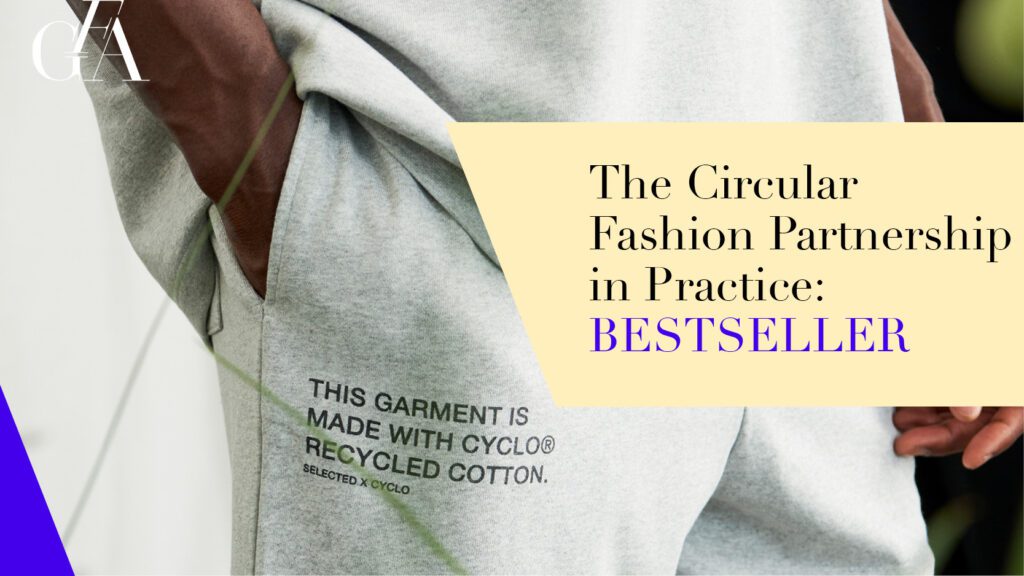The Circular Fashion Partnership in Practice: BESTSELLER


BESTSELLER is a Supporting Partner of the Circular Fashion Partnership, a cross-sectorial project to support the development of the textile recycling industry in Bangladesh by capturing and directing post-production fashion waste back into the production of new fashion products. Below we learn how the partnership has made an impact at BESTSELLER.
The importance of a circular fashion system for BESTSELLER
BESTSELLER believes that transitioning to circular fashion systems presents enormous potential for the company to lower its impact and become less dependent on virgin resources. This will require replacing the traditional linear model of take-make-waste with circular solutions that safeguard the world’s finite resources and eliminate waste. To be able to grow as an organisation, BESTSELLER recognises the need to rely more on circular fashion systems in the future to decouple turnover from its overall impact.
The BESTSELLER Sustainability Report 2021 outlines its ambitions to scale its circular systems, with the goal to phase out single use virgin plastic wherever possible by 2025. Its business model will be based on design principles that prioritise efficiency and the reuse of resources at every level, from fibres to water and chemicals to post-consumer, in order to minimise waste and keep resources in use.
Barriers to scaling effective circular systems
Based on learnings from the Circular Fashion Partnership, BESTSELLER identified that the key barrier to scaling effective circular systems in Bangladesh is the informal waste system. The company identifies that this needs to be addressed to complement its efforts and recognises the need to work together as an industry to build an infrastructure for pre-consumer waste which is inclusive of all stakeholders in the supply chain, without neglecting anyone. The purpose of this would be to make the supply chain more transparent and ensure that waste goes back into new products.
BESTSELLER’S Circular Fashion Partnership Activities
As part of the Circular Fashion Partnership, BESTSELLER has been – and still is – engaging with suppliers and recyclers to increase the use of pre-consumer waste – making sure that it ends up in new products. Together BESTSELLER wants to increase the mix of materials currently being used for recycling. Today, it identifies a high focus on only 100 percent cotton waste but wants to challenge the status quo and find a lasting destination for mixed materials as well.
Additionally, BESTSELLER – together with the manufacturers – makes sure that there are clear business incentives for the segregation and sorting of waste and supports the work to engage with the informal sector within circular fashion systems in Bangladesh.

About BESTSELLER
BESTSELLER is an international family-owned fashion company with a strong foundation. The company has more than 18,000 dedicated employees globally and provides fashion clothing and accessories for all ages, genders and occasions.
BESTSELLER’s ultimate ambition is to bring ‘Fashion FWD’ until it is climate positive, fair for all and circular by design, and sees collaboration as the key to finding solutions and making lasting changes. With sustainability as a prerequisite for ongoing business success, BESTSELLER is investing in innovation and working in partnerships across the value chain.
For more information, visit bestseller.com
BESTSELLER is one of Global Fashion Agenda’s Supporting Partners for the Circular Fashion Partnership. Read more about the Circular Fashion Partnership and its various partners here.